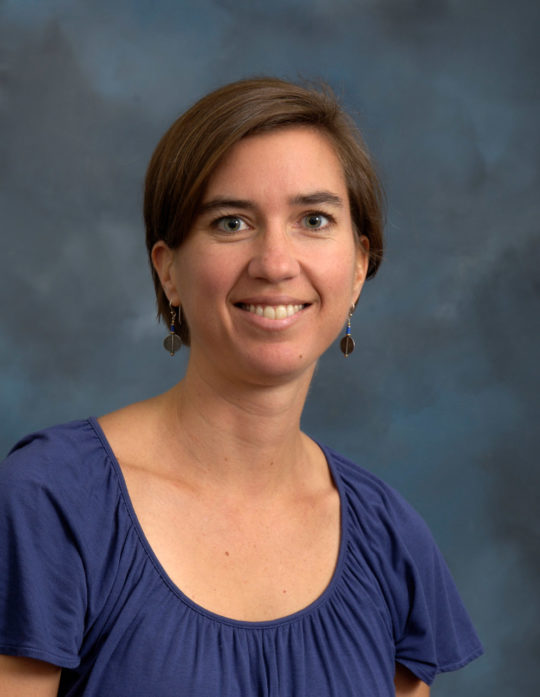Abigail Fagan, Ph. D.
Abigail Fagan, Ph.D.
Professor of Sociology, Criminology and Law
College of Liberal Arts and Sciences
2020 Awardee
Abigail Fagan, professor of criminology and law, specializes in prevention science, an interdisciplinary field that helps promote public wellbeing by using scientific advances to prevent behavioral and health problems. As a sociologist and criminologist, she studies how communities can prevent crime by addressing factors that drive criminal behavior in young people, including how traditional gender roles contribute to the gap between male and female criminal involvement. But there’s no one-size-fits-all strategy – Fagan said empowering communities to determine their priorities and work towards individualized goals is key to long-term reductions in crime.
“This is a place where there’s a lot of new knowledge being generated, but also a lot of obstacles that have to be overcome – the best kept secret, really, in society is we actually do know how to prevent crime, but we don’t do it,” Fagan said. “We need to do better at getting information out to people who can implement strategies that have been shown to effectively prevent crime.”
Fagan said the consequences of early criminal involvement can result in chronic setbacks in an offender’s life, whether by way of an increasingly serious criminal record or the challenges of returning to daily life after imprisonment – making outright prevention of crime key to creating a more effective justice system.
Fagan, who considered pursuing a career writing crime fiction before earning her Ph.D. in sociology from the University of Colorado, has published more than 80 peer-reviewed papers and two books. An advocate for making new crime prevention strategies accessible to community leaders with the local expertise to successfully implement them, her earliest experiences with community-based crime solutions were as an intervention specialist in the University of Washington’s Communities That Care crime prevention program.
“It was inspiring to see people doing good work in their own communities,” Fagan said. “Having that applied knowledge – seeing how people use scientific information or don’t – gave me so much more insight into the value of research and how to communicate research findings to different audiences. I couldn’t have gotten that any other way.”
Communicating her discoveries remains central to Fagan’s work. Today, she serves as a member of the advisory board for Blueprints for Healthy Youth Development, a group dedicated publically sharing scientifically proven strategies supporting healthy youth development. She is also president-elect of the Society for Prevention Research, where she leads efforts to develop and promote prevention science across disciplines.
“I’m a criminologist, but my passion really is on preventing crime and making society a better place,” she said. “It just makes me feel happier to know that it is possible – there’s reason for optimism when you’re doing these kinds of interventions.”
Learn more about Fagan’s research.


